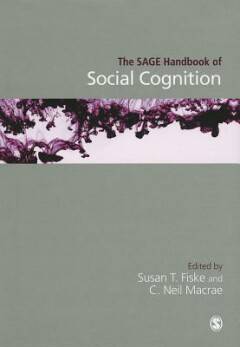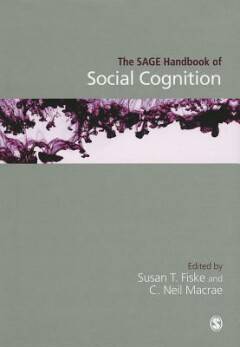
- Retrait gratuit dans votre magasin Club
- 7.000.000 titres dans notre catalogue
- Payer en toute sécurité
- Toujours un magasin près de chez vous
- Retrait gratuit dans votre magasin Club
- 7.000.0000 titres dans notre catalogue
- Payer en toute sécurité
- Toujours un magasin près de chez vous
Description
The SAGE Handbook of Social Cognition is a landmark volume. Edited by two of the field's most eminent academics and supported by a distinguished global advisory board, the 56 authors - each an expert in their own chapter topic - provide authoritative and thought-provoking overviews of this fascinating territory of research. Not since the early 1990s has a Handbook been published in this field, now, Fiske and Macrae have provided a timely and seminal benchmark; a state of the art overview that will benefit advanced students and academics not just within social psychology but beyond these borders too. Following an introductory look at the 'uniqueness of social cognition', the Handbook goes on to explore basic and underlying processes of social cognition, from implicit social cognition and consciousness and meta-cognition to judgment and decision-making. Also, the wide-ranging applications of social cognition research in 'the real world' from the burgeoning and relatively recent fields of social cognitive development and social cognitive aging to the social cognition of relationships are investigated. Finally, there is a critical and exciting exploration of the future directions in this field. The SAGE Handbook of Social Cognition will be an indispensable volume for any advanced student or academic wanting or needing to understand the landscape of social cognition research in the 21st century.
Spécifications
Parties prenantes
- Auteur(s) :
- Editeur:
Contenu
- Nombre de pages :
- 592
- Langue:
- Anglais
Caractéristiques
- EAN:
- 9780857024817
- Date de parution :
- 20-04-12
- Format:
- Livre relié
- Format numérique:
- Genaaid
- Dimensions :
- 175 mm x 249 mm
- Poids :
- 1179 g

Les avis
Nous publions uniquement les avis qui respectent les conditions requises. Consultez nos conditions pour les avis.






